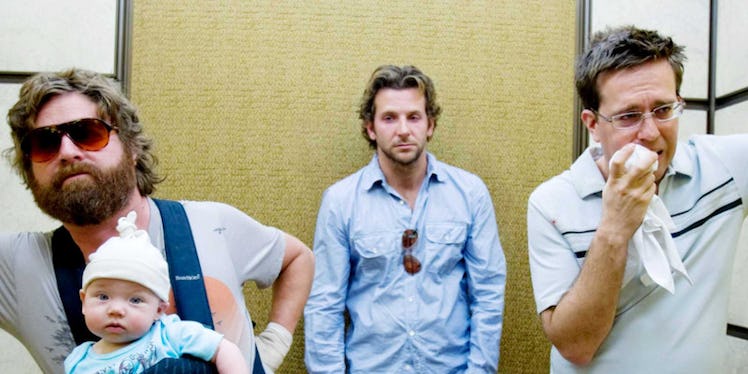
5 Precautions To Take So Losing Your Wallet Doesn't Ruin Your Vacation
I recently made a week-long business trip to Las Vegas. An all expenses paid trip to Sin City with no limits, sounds like a dream come true, right?
I planned for a few hours of work a day followed by nights spent walking the strip, throwing money around at casinos, seeing shows and drinking to cut loose.
Well, that dream was cut short 24 hours in, when I realized I lost my wallet.
The first night I was there, before I was even able to make any cliché “Vegas mistakes,” I noticed each and every one of my pockets lacked the sweet touch of leather.
Needless to say, I went into a panic.
I managed to (completely sober) leave my wallet with all of my cash, debit cards, credit cards, insurance info and ID, on a table and walk away in a town that's not exactly well-known for its upstanding citizens.
Within 30 minutes, $1,000 worth of purchases were made with both my credit and debit cards. So I was stuck in Vegas, about 2,000 miles from home, with four days left of my trip and a whopping $40 in my pocket.
I managed to survive through some creativity and willingness to compromise, but that's another story.
What I'm really focused on is the epiphany I had: I'm vulnerable.
I could brush this off saying it was only a one-time thing, but I never want to feel the same feeling of helplessness I felt on that trip ever again.
So I should have some safeguards in place, just in case it does happen again.
Here are five things losing my wallet taught me:
1. Add a passcode to your phone.
I know this seems like a no brainer, but I sacrificed security for convenience by skipping the passcode access for my iPhone. I didn't lose my phone, but what if I did? There's a lot of information on it that could complicate things for me.
A four digit passcode has 10,000 combination possibilities. A six digit passcode has 1 million combination possibilities. So add the passcode to your phone, and add a fingerprint for good measure.
2. Travel with multiple forms of identification.
I never really thought of this one before.
When I arrived at McCarran Airport, I made my way to the help desk to make sure I would be able to get through security and board my plane. The woman assured me the photocopy of my passport my girlfriend sent me would be sufficient.
So I went to security and, of course, they called for a supervisor. The supervisor took the photocopy of my passport and proceeded to ask if I had another form of identification. I explained to her that I lost my wallet and she told me she needed to see something else with my name on it because a photo wasn't sufficient.
Luckily, I had a prescription pill bottle that was enough to get me through.
In other words, a copy of something with my image, name and personal information wasn't enough, but a pill bottle with my name on it was perfect. (WTF?)
The lesson here is that it's a good idea to travel with multiple forms of identification and keep them in separate places.
3. Keep a spare credit card.
I've always done this and I still do this.
Unfortunately, that spare card was sitting on the table next to my bed at my home in New York.
However, considering it takes credit card companies over a week to send you a new card in the event it's been compromised, it's a good idea to have a backup somewhere, just in case.
4. Use Apple Pay or Google Wallet.
Aside from the $40 cash in my pocket, I was left with nothing to pay for anything in a very expensive city.
If I had added my spare card to Apple Pay, I would've still been able to make purchases.
5. Invest in identity protection and insurance.
I've always thought, “It won't happen to me.” But there I was, sitting with my identification and personal documents in someone else's hands.
I had no idea what they were planning on doing, and my identity could still easily be compromised.
More than that, it's good to be aware of what's happening in cyber-world that could affect your identity. Everyone shops online. Everyone has provided personal information to a bank, credit card company, doctor's office, etc. Those places get hacked all the time.
Invest in identity protection. A quick search brings up a number of options and after some research, you can find the one that fits your needs and your budget.
The point is, everyone and everything are vulnerable to theft and when something they're associated with becomes compromised, you do as well.
Whether it's your own recklessness or the fault of another, you should have safeguards in place.